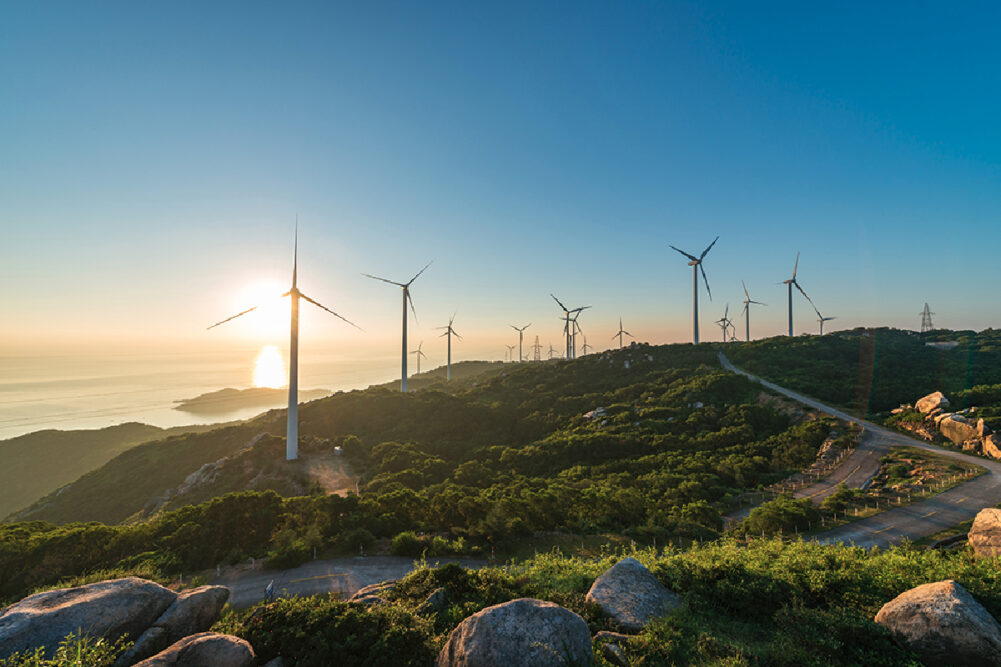PARIS — Danone plans to invest €2 billion ($2.18 billion) in a climate acceleration plan over the next three years that is designed to further transform Danone’s agriculture, energy and operations, packaging, and digital capabilities. The investments will shape a “climate-powered business model,” said Emmanuel Faber, chairman and chief executive officer, in a Feb. 26 earnings call.
“We believe that we reached a tipping point where our brands will be incredibly stronger if climate is an ally and not an enemy, and we believe that we have the right business model to achieve that,” he said.
Danone executives gave details about the plan while reporting fiscal-year 2019 results and giving outlooks for fiscal-year 2020. The coronavirus outbreak will have a negative impact, especially on the Waters segment in this year’s first quarter.
Net income of €1,929 million ($2,100 million), or €2.95 ($3.21) per share, in fiscal 2019 was down 18% from €2,349 million, or €3.63 per share, in fiscal 2018. A non-cash charge of €154 million ($168 million) resulted from a loss on the divestiture of Earthbound Farm in April 2019. Sales of €25,287 million ($27,532 million) were up 2.6% from €24,651 million in the previous fiscal year.
Danone executives expect mid-single-digit recurring e.p.s. growth in fiscal 2020, which reflects 2% to 4% like-for-like sales growth and a recurring operating margin above 15%. Danone in its 2020 outlook factored in an assessment to date of the impact of the coronavirus outbreak. The company expects the outbreak to lead to a first-quarter loss of about €100 million in net sales, said Cécile Cabanis, chief financial officer of Danone.
Within the €2 billion investment in the climate acceleration plan, about €600 million will be recurring costs spread over three years, about €1 billion will be related to capital expenditures and about €500 million will be one-time costs.
Regenerative agriculture is a key part of the plan.
“Already in a number of countries, the U.S. and many others, soils are eroded to the tune of 50% to 70%, which means no farming in the future,” Mr. Faber said. “Agricultural cycles are pretty long, so there is an urgency to put carbon back into the soil because carbon is essentially 60% of organic matter. So you cannot have healthy soils that will support the agriculture of tomorrow if we do not put carbon back into the soil through regenerative practices.”
To tackle deforestation, Danone has segregated palm oil logistics for its International Delight brand non-dairy coffee creamers. Cargill, Minneapolis, has built separate infrastructure in the ports that import palm oil for Danone, Mr. Faber said. The joint capital expenditure will allow Danone to segregate its palm oil and use palm oil not linked to deforestation.
In its Waters segment, Danone has committed to reach 100% recyclable polyethylene terephthalate bottles in Europe by 2025 and will invest to find packaging alternatives to plastics. The alternatives could include glass, cans and paper. Danone aims to make its evian and Volvic brands in Europe fully carbon neutral in 2020.
“You’ve seen the plastic conversation rising tremendously in 2018, ‘19,” Mr. Faber said. “We really believe that it’s time to take this fully on the agenda of the company in a pretty radical manner.”
Results from the Waters segment, especially the Mizone brand in China, are being impacted negatively by the coronavirus outbreak, Ms. Cabanis said, adding the company expects Mizone sales to be down 50% in February.
“The current coronavirus outbreak is having significant effects on our first-quarter sales,” she said. “As you know, Mizone is an on-the-go product, mostly distributed in convenience and traditional channels, and those channels have been heavily impacted by the outbreak.”
A factory that makes Mizone in the Chinese city of Wuhan, where the coronavirus originated, is still closed, she said. Danone had planned to relaunch Mizone in the first quarter, but those plans have been delayed to the second quarter.
China, Danone’s second largest market, accounted for 10% of company sales in 2019. Danone in China has 8,200 employees and eight factories, including seven for Waters and one for Medical Nutrition.
Within Waters, recurring operating profit of €593 million ($646 million) in the fiscal year was up 23% from €483 million in the previous fiscal year. Sales rose 2% to €4,568 million ($4,974 million) from €4,480 million.
In the Essential Dairy and Plant-based segment, recurring operating profit of €1,345 million was up 2.1% from €1,317 million in the previous fiscal year. Sales inched up 0.8% to €13,163 million from €13,056 million. In North America, U.S. yogurt’s performance improved in the fourth quarter behind the success of Two Good, which is ending its first year with $50 million in sales, Ms. Cabanis said. In a sustainability move, Danone may switch to polylactic acid, which is plant-based, for yogurt packaging, Mr. Faber said.
In the Specialized Nutrition segment, recurring operating profit of €1,908 million marked an 8% increase from €1,762 million in the previous fiscal year. Sales jumped 6% to €7,556 million from €7,115 million.





